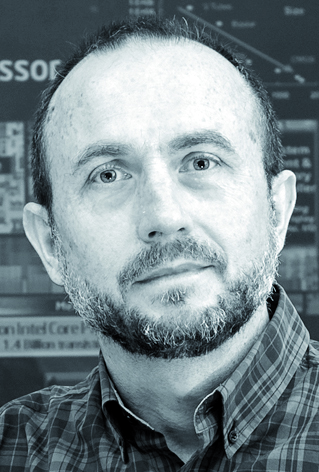Antonio González (PhD 1989) joined the faculty of the Computer Architecture Department of Universitat Politècnica de Catalunya in 1986 and has been Full Professor since 2002. He was the founding director of the Intel Barcelona Research Center from 2002 to 2014. He has published over 370 papers, has given over 120 invited talks, holds 51 patents and has advised 33 PhD theses in the area of computer architecture. He has served as associate editor for five IEEE and ACM journals, and program chair and general chair for the most prestigious symposia in his area. He has a long track record of innovations through transfers of his research results to commercial products, especially microprocessors. Antonio’s awards include the best student in computer engineering in Spain, the Rosina Ribalta award, the Duran Farell award, the Aritmel National Award of Informatics, the King Jaime I award, and the ICREA Academia award. He is an IEEE Fellow and recipient of an ERC Advanced Grant.

Antonio González
ICREA Academia 2014 & 2019
Universitat Politècnica de Catalunya · Engineering Sciences

Research interests
Antonio’s research has focused on computer architecture, compilers and parallel processing, with special emphasis on microarchitecture and code generation techniques for the design of power efficient and reliable computing systems. One of his main current focuses is on Cognitive Computing architectures, where the goal is to devise new “intelligent” devices that will help people in their daily routines at work, home or for entertainment. In particular, he is investigating novel architectures for computer vision and speech recognition, as well as novel microarchitectures for graphics processors. Another area of his research is the design of reliable and resilient computing systems that can efficiently deal with the increasing vulnerability and variations exhibited by transistors as their dimensions keep shrinking. Finally, he is working on the design of energy-efficient computing architectures taking into account both the characteristics of future technology and applications.
Keywords
Computer architecture, processor microarchitecture, power-efficiency, memory architecture, graphics processors